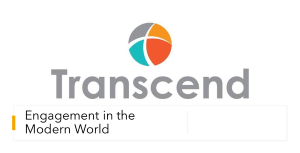Pioneer Stakeholder Capitalist Jurist: Businesses Should Stay Out of Politics
In this wide-ranging interview with two experts in the areas of Stakeholder Capitalism and corporate governance, Leo E. Strine Jr., former Delaware
.jpg) Supreme Court Justice and now at Counsel at the law firm Watchell, Lipton, Rosen, and Katz, says the current debate about Stakeholder Capitalism and Environmental, Social, Governance (ESG) is more a reflection of well-established opposing views about the pros and cons of capitalism and free enterprise than it is an actual debate about the merits of Stakeholder Capitalism itself. Contrary to the definition used by opponents on both the right and left, Strine asserts that it's about staying completely out of politics unless an issue is critical to an organization and, in that case, with board approval.
Supreme Court Justice and now at Counsel at the law firm Watchell, Lipton, Rosen, and Katz, says the current debate about Stakeholder Capitalism and Environmental, Social, Governance (ESG) is more a reflection of well-established opposing views about the pros and cons of capitalism and free enterprise than it is an actual debate about the merits of Stakeholder Capitalism itself. Contrary to the definition used by opponents on both the right and left, Strine asserts that it's about staying completely out of politics unless an issue is critical to an organization and, in that case, with board approval. He asks a simple question: "What would provide greater value for the the typical organization's shareholders: a $5 million bonus to the CEO or a $1,000 bonus for 5000 workers?"
In ths EEA show, along with Larry Beeferman, Fellow on Work Life and Labor for the Harvard Law School, the two discuss the definition and practice of Stakeholder Capitalism in late 2022 and what it requires of management seeking to enhance returns for investors by creating value for customers, employees, supply chain and distribution partners, communities, and the environment. Click here to view the full video, or here for the podcast.
Stakeholder Capitalism became conflated with politics, Strine says, because of the general confluence of the timing of Business Roundtable update of the purpose of the corporation to address the interests of all stakeholders and the period of heightened social unrest resulting from the pandemic and the murders of George Floyd and others, which in turn heightened concerns about general inequality and corporate hypocrisy.
Does Strine believe that the principles of Stakeholder Capitalism will prevail. He hesitates. “Can we include more of humanity in the blessings of a market system that does things the right way? I don't know whether I’m optimistic or not, but it seems to me that's the cause to which we need to commit ourselves. And if we do that, I frankly believe we're all going to be better off, and therefore we're going to be more like the big family at Thanksgiving. We may not agree on everything, but we can enjoy the game together and realize that the ties that bind us are a lot more important than the differences between us.”
Here are additional highlights:
Strine. “Stakeholder Capitalism is about wanting to “make money but wishing to make sure that we're respectful to all our stakeholders. This is the kind of capitalism in which you make money the right way, without imposing costs on society. There has always been this push and pull because you're taking other investors’ money. During the Great Society, there were concerns about corporations forming foundations and using their money to influence society. And then there were people like Ralph Nader who didn’t trust business and who were concerned about corporate power influencing the political process in a way that was harmful to workers, the environment, and consumers.”
Strine. “A majority of American states have so-called constituency statutes that say that boards can actually pursue the best interests of their stakeholders along with their stockholders. Even in Delaware, it has been long understood that, as long as there’s a rational relationship to the best interest of your stockholders, you can otherwise be attentive to the interests of workers and the communities in which you operate, including making charitable contributions.”
Beeferman. “A lot of the debate about Stakeholder Capitalism is about power and pushback over power. And there is a big difference about the talk about
.jpeg) looking after the interests of stakeholders and what happens in actual practice,” which, he underlines, has contributed to the pushback.
looking after the interests of stakeholders and what happens in actual practice,” which, he underlines, has contributed to the pushback.Strine. “Feudalism existed for a long time, and it was quite profitable for the overlords. We had slavery in this country for centuries, and it made many people wealthy. We’ve had industries in this country that have made money for generations that were not good companies to work for. It is also the case that there are many companies that have a model of shared success in which their workforce is treated well and their stockholders benefit accordingly. But the rules of the game matter and part of what we overcame during the New Deal and through European social democracy was having fairly stable rules of the game. This is so you can have the dynamism of a market economy, but it's set up so it’s fair to the people who are most important to creating the wealth. We want to make sure that we align our market dynamics with the best interests of all of us.”
Strine. "Everyone wants organizations to generate profits, starting with the workers and pensioners and others who invest in them. So, what we really want is for companies to make money the right way; which is making money, net of externalities, that creates real value, and where wealth is created by improving the state of things.” Note: Externalities mean imposing costs on society, such as underpaying workers in a way that causes them to apply for social benefits or causing environmental or infrastructure damage that cost money and inconvenience to taxpayers. A company with an 8% return on equity might actually have a higher actual return than a company with a 10% return on equity if its costs to taxpayers or other stakeholders are factored in, Strine notes.
Beeferman. The big question is: how to get organizations to change. “What do we do to spur companies to rethink how they do things? I'm not saying that a greater regulatory regime is required, but what do we do to spur them to experiment, with what modalities? The Public Benefits Corporation is one such modality that would be worth exploring, and there must be others.”
Strine. "The US approach to globalization was very different than Japan and Germany, which engaged in gainsharing between stockholders and workers. Under President Ronald Reagan, we went in a direction in which the power of workers went down, and the power of stockholders and the markets went way up and inequality grew. When inequality grows, you've got people subject to nativist appeals because they are suffering from economic insecurity. This played a big role in the rise of fascism and communism. What's also happened is because the business sector in this country is allowed to apply pressure on government, there have been huge increases in corporate political spending.”
Strine. CEOs should stay out of politics unless an issue is specifically aligned with its mission. “I have no problem with the CEO saying, ‘I don't believe in discrimination, and that's not the way we behave as a company, and we as a company are relentlessly attempting to be non-discriminatory.’ I think the more difficult thing is if you're going to say we're not going to do business in an entire American state because of this or that law. There’s a whole bunch of your employees who work in that state who don't agree with the state policy. And the other difficulty is sometimes a CEO speaks out and says he or she doesn’t like this law and then it turns out the company has given tens of millions of dollars to the very legislators who passed the law. Companies should measure themselves primarily on how they treat their employees and other stakeholders--are they open to employees of all races of all sexual orientations and preferences? Is the workplace tolerant and free of harassment? Does the company pay a living wage? Are the communities in which it operates better off? Do they give to local charities? Are the facilities safe and non-polluting? Are the products safe and fit for their purpose and make their consumers better off? Are they paying all the required taxes? That's the real test of being a quality business. Business should leave the politics to their stockholders, their customers, and other stakeholders and focus on being a good business. And if they do that, they'll probably bring out the better angels in society's nature because they'll set an example that's positive, and they'll also probably reduce controversies because they'll be welcoming to Americans of all kinds to do business with them and work for them.”
Beeferman. “My slightly cynical view is, depending on the context, some of these brands are getting involved with politics to establish their brand and image with specific constituencies, such as younger workers. Unless you match your situational response with real thought, and follow through, then you increase skepticism and create an impression of hypocrisy.”
Strine. “One of the best ways that we can restore social harmony is to restore fair gainsharing with workers because that will disproportionately help people on the bottom of ladder that will help close the inequality gap that has grown, and which has fallen disproportionately on Black Americans and other minorities…I think the people most important to success in business are the workers. But if you look at it, I think the workers within the ESG movement have been buried in the ‘S.’ And I believe that the ‘E’ and progress with the environment will not go forward without employees, starting with our energy workers…And then you look at the fact that the share of the profits that now goes to workers is tiny in comparison to what would have been the case of the 1960s and 1970s, which is a huge part of the inequality gap. There has been much more profit and much more productivity since that time, but the share of it that the workers would have gotten in the past has gone down and the distributional effects of that are negative.”
Both Strine and Beeferman agree that it is within the scope of fiduciary duty with respect to the investment of retirement plan assets to take into account companies’ conduct in ESG terms. While there are legitimate concerns about asset manager “greenwashing,” recent, intense political opposition seems more driven by ideological opposition to interference with top-level company decision-making and the change, e.g., fossil fuel abatement, which would result from it. While that opposition casts taking into account ESG as posing financial risk, it is likely to be the reverse. In any case, major investors have far less responsibly taken on greater risks. Editor’s note: A Canadian pension fund announced that it was taking a $95 million write-off on its investment in the now defunct FTX crypto exchange.
Executive pay. Organizations should expand their executive compensation committees to address total workforce issues. “We should look at executive pay in the context of total pay,” urges Strine, asking: “What would provide a better return to shareholders: giving a CEO $5 million more in pay or giving 5,000 workers a $1,000 bonus?” Business will benefit by restoring the concept of gainsharing with employees.


















